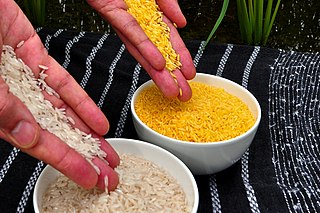Well here's an interesting development. Mandatory labeling of GMOs (genetically modified organisms), the subject of CA Prop 37, has opened a rift between two of my favorite organizations. The AAAS (American Association for the Advancement of Science) recently released a statement opposing mandatory GMO labeling, while the UCS (Union of Concerned Scientists), remains firmly in favor. The AAAS says mandatory labeling is reserved for potential dangers, but genetic engineering is as safe as conventional breeding. Therefore, labels would falsely imply something wrong with GMO products. The UCS, on the other hand, supports GMO labeling along with 21 other independent scientists. As Hank points out elsewhere on this site, the GMO labeling debate reveals quite a bit of hypocrisy in public opinion.
All of which might leave me in a bit of a quandary. I am a member of both the AAAS and the UCS (though I must admit I trust the AAAS more for objectivity). I buy organic groceries at a local co-op to minimize ingestion of pesticides and hormones, to support more sustainable and humane farming practices, and to get a healthy dose of the placebo effect, which is, after all, quite real and quite potent. But in my day job as a molecular biology PhD student, I regularly GM my O's, since there's no other way to understand what genes do. (My research has been fairly basic although inspired by eventual applications, and I haven't worked with crops.) So as an informed, rational, tree-hugging hippie, where should I fall on this issue? Like any good scientist, I went straight to the sources and evaluated their arguments.
As with many disagreements, the two sides seem to be simply talking past each other, making different and non-contradictory points. The problem lies in painting all GMOs with the same brush, and in separating science from policy advice.


Left: Golden rice was engineered with the best of intentions to contain beta carotene. This would fight vitamin A deficiency in an estimated 190 million people, for many of whom rice is an important staple crop. Right: Some of the more controversial GMOs are resistant to the herbicide Roundup, encouraging heavy spraying in fields. Images: International Rice Research Institute and PI77 of wikimedia commons.
First for the science. Genetic engineering is simply a tool. Like any tool, it can make good things and it can make bad things. Good things example: vitamin-enhanced foods that fight malnutrition. Potentially bad things examples: soybeans containing a brazil nut gene that could cause allergic reactions, and Roundup resistance that encourages heavy herbicide use, which can promote resistance and cause health and environmental effects. In referring to the tool, then, the AAAS is correct that "crop improvement by the modern molecular techniques of biotechnology is safe." At the same time, In referring to the products the UCS is also correct that some GM crops could cause health effects or environmental damage. So scientific conclusion: genetic engineering as a tool is perfectly benign, but the products of that tool might be or might not be.


These products were both produced via fermentation followed by distillation. Should they bear the same surgeon general's warning? Images: Algont of Wikimedia Commons and Enrico Uva